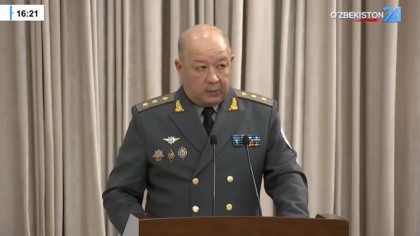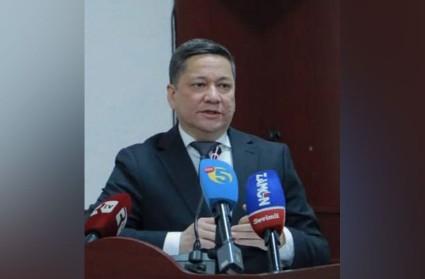The Legislative Chamber passed at a meeting on July 15 a bill expanding the powers of patrol and post police (PPS) and local policemen in the first reading.
The Deputy Interior Minister Bekmurod Abdullaev said that the document was developed by the Interior Ministry "in order to reliably protect the human rights and freedoms, as well as strengthen law and order in the country."
He added that in 2022, a new structure was introduced in Uzbekistan - mahalla (neighbourhood) law enforcement points, which combined the efforts of police bodies, other law enforcement agencies and public organizations. This system, according to Abdullaev, yielded a positive result: "We managed to reduce the level of offenses in mahalla (neighbourhood)s with a difficult crime situation."
As part of the continuation of the reforms, up to five mahalla (neighbourhood)s are being combined into micro-districts, where a rapid response system is proposed to be introduced. To ensure order in these areas, the positions of senior and junior local policemen were introduced. "These measures are already being implemented in provincial centers and districts with a serious crime situation," the deputy minister added.
He also drew attention to the problem of increased workload on officers authorized to make decisions on violation sheets drawn up by patrol officers. Today, the Patrol and Post Service (PPS) has the authority to draw up violation sheets, but decisions on them are left to the chiefs and deputy chiefs of district and city police departments, chiefs of transport security units, and local policemen.
"This leads to an increase in their workload and delays in the consideration of cases. For example, local policemen alone draw up more than 2.5 million violation sheets annually," he said.
In the first half of 2025, PPS officers in 76 cities and districts drew up 455,328 violation sheets. In 2024, there were more than 500,000. "The number of violations identified by the PPS is growing from year to year," Abdullaev emphasized.
Meanwhile, he noted, the PPS officers working in the metro, on the railways and on the streets of cities do not have the authority to draw up violation sheets for violations of safety rules or traffic regulations. This, according to him, gives rise to "justified complaints from citizens who have to be temporarily detained until the arrival of authorized persons."
What the bill is proposing
Taking these problems into account, the Interior Ministry is proposing:
- grant senior and junior local policemen the right to consider cases of administrative offenses and apply enforcement measures;
- grant similar powers to the chiefs of the public order protection service, their deputies, chiefs of PPS departments, inspectors for important assignments, senior inspectors, chiefs of the Departments for Ensuring Public Order Protection and their deputies, as well as commanders of battalions, brigades and detachments and their assistants;
- expand the powers of PPS officers - grant them the right to draw up and review violation sheets under a number of articles of the Code of Administrative Responsibility, including Part 4 of Article 113 (Passing along railway tracks in unauthorized places), Articles 114 (Violation of the rules for using railway transport), 115 (violation of the rules for using the subway) and 138 (Violation of traffic rules by pedestrians and other road users).
It should be noted that Article 138 of the Administrative Offenses Code provides for "failure to obey traffic signals by pedestrians, crossing the roadway in unauthorized places, using a telephone, reading books or periodicals, watching video materials and listening to audio materials, as well as using other electronic devices that distract attention when pedestrians are moving along the roadway, including at a pedestrian crossing, as well as failure to obey traffic signals, failure to comply with the requirements of priority road signs, prohibiting or prescribing road signs by persons driving scooters, mopeds and bicycles, personal transportation vehicles, driving horse-drawn carts and other persons using roads." According to Bekmurod Abdullaev, the passing of the bill will "ensure the inevitability of punishment for violations, speed up the adoption of decisions on violation sheets, increase the efficiency of the PPS, and legalize the activities of inspectors within their competence."
The MPs unanimously and without question adopted the bill in the first reading. Now it must be considered in the second and third readings before being sent to the Senate.
At the end of May, the Senate approved the law on a 5-fold (from 375 thousand to 1.87 million soums) increase in the minimum fine for resisting police officers and the National Guard. The amendments also included other provisions not related to fines. In the lower house, the part of the law devoted to fines for disobedience was considered without broadcasting.














